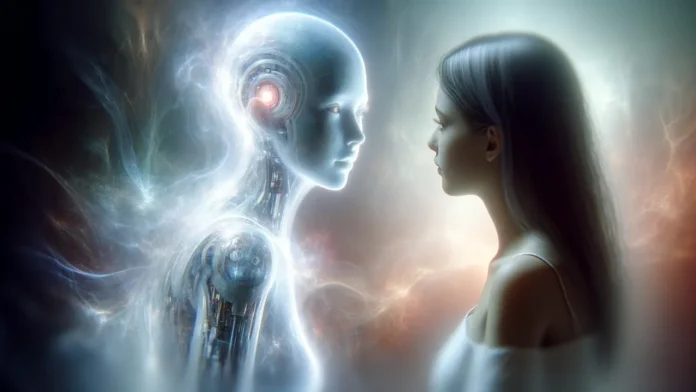Losing a loved one can affect everyone’s life. However, what if bidding farewell wasn’t the last step? Consider being able to communicate with loved ones, digitally bring them back, and find out how they’re doing no matter where they are. Nigel Mulligan, a lecturer in the Department of Physiotherapy at Dublin City University, noted that for many people, the prospect of seeing a deceased loved one move and speak again could be comforting. AI “ghosts” could lead to psychosis, tension, and disorientation.
Mulligan is an artificial intelligence therapy researcher who finds the development of ghost bots fascinating. But he’s also concerned about how they can impact people’s mental health, especially mourning individuals.
The revival of deceased people as avatars could lead to more issues than they solve, increasing disbelief, tension, sorrow, anxiety, and, in extreme circumstances, even psychosis.
Artificial intelligence (AI) developments have led to chatbots like ChatGPT, which can have conversations with users that resemble human contact.

Artificial intelligence programs can create convincing virtual portraits of departed people using digital Information like emails, movies, and images with deepfake technology. Mulligan claims that what appeared to be pure fiction in fantasy novels has since evolved into a physical reality in science.
AI ghosts could interfere with the mourning process’ natural flow.
Ethical and Information technological studies suggested using death bots as temporary comfort during grieving to avoid an unhealthy emotional dependence on technology.
Artificial intelligence ghosts can interfere with the normal grieving process and affect people’s mental health.
Mourning is a long-term process that starts slowly and progresses through many phases over several years.
People may often think about their deceased loved ones and remember them intensely during the early stages of mourning. According to Mulligan, it is common for mourners to have realistic nightmares about their departed loved ones.
AI “ghostbots” could lead to problems like delusions.
Sigmund Freud, a psychoanalyst, was particularly concerned about how individuals handled grief. He pointed out that if the death has unfavourable aspects, there may be more difficulties during the grieving process.
For example, someone may feel guilt after having conflicting emotions for a deceased individual. In the same way, a grieving individual may find it much more difficult to accept the loss if it happened in the immediate aftermath of a terrible event, such as a murder.
It is what Freud called complex grief or melancholia. In extreme circumstances, a person may see ghosts or have delusions of the departed, making them think the individual is still present.
![]()
The use of AI ghost bots can increase the suffering of an individual suffering complex grieving and could intensify problems like delusions.




